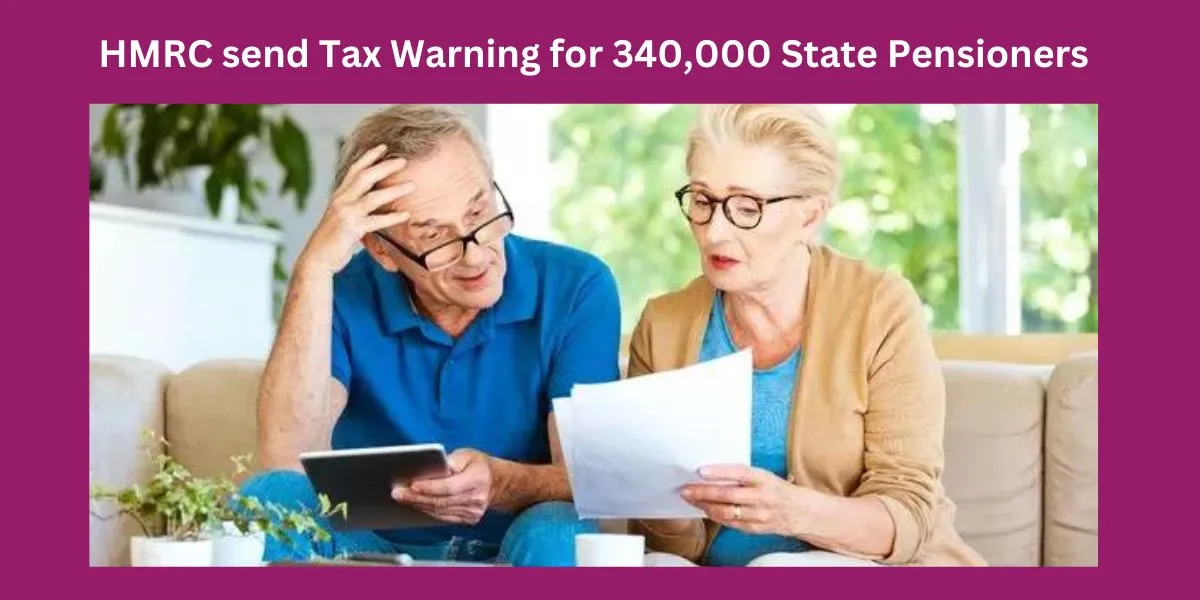Are you one of the 340,000 state pensioners potentially facing a hefty tax bill? A recent warning from HMRC has left many pensioners worried, and for good reason. With tax changes and thresholds in flux, it’s more important than ever to understand how these adjustments could affect your state pension and income. In this article, we’ll break down everything you need to know about the looming HMRC bill, how to prepare, and what steps you can take to avoid any nasty surprises.
What Is the Tax Warning About?
The UK’s tax authority, HMRC, has issued a warning to 340,000 state pensioners. Essentially, they’re alerting people that they might owe tax on their state pension income. While many assume their state pension is tax-free, that’s not entirely the case. If your total income exceeds the personal allowance threshold, you could find yourself owing more than you expected.
Why Is This Happening Now?
The recent warning is tied to tax thresholds and personal allowances not keeping pace with inflation. With the cost of living going up, state pensions have increased—but the tax thresholds haven’t adjusted accordingly. This mismatch means more pensioners are crossing the tax-free income threshold.
How Does Tax on State Pensions Work?
The Personal Allowance
The personal allowance is the amount of income you can earn before you have to pay tax. As of 2024, the personal allowance stands at £12,570. If your total income—including state pension, private pensions, and any other earnings—exceeds this amount, you’ll need to pay tax on the excess.
The State Pension Is Taxable
Many people don’t realize that their state pension is treated like any other income for tax purposes. If you only have the state pension as your income and it stays below the personal allowance, you won’t owe any tax. But if you have other sources of income, things can get a little more complicated.
Who Is Affected by the Tax Warning?
The 340,000 State Pensioners
HMRC’s warning is specifically targeting around 340,000 state pensioners. These individuals are at risk of exceeding the personal allowance threshold due to the state pension increase, private pensions, or additional sources of income such as savings or investments.
Are You at Risk?
If your income is close to or above £12,570, you could be one of the affected pensioners. It’s essential to assess your total income, including your state pension, to determine if you’re over the limit.
Why This Tax Bill Might Come as a Surprise
Misconceptions About the State Pension
Many pensioners mistakenly believe that the state pension is entirely tax-free. While it is paid without tax deductions, it still counts towards your total taxable income. This misunderstanding is one of the reasons so many pensioners are being caught off guard by the tax bill.
Inconsistent Notifications from HMRC
Another issue is that HMRC doesn’t always send out regular updates about tax liabilities. If you’re not proactively checking your income against tax thresholds, you might not even realize you owe tax until a bill arrives.
What Can You Do About the Looming HMRC Bill?
Review Your Income Sources
The first step in avoiding an unexpected tax bill is to review all your sources of income. This includes your state pension, private pensions, and any additional earnings. Keep track of how much you’re earning and whether it exceeds the personal allowance.
Adjust Your Income Where Possible
If you find that your income is close to or over the threshold, consider adjusting it where possible. This might include deferring your state pension or adjusting withdrawals from private pensions to stay under the limit.
Check Your Tax Code
Make sure your tax code is correct. Your tax code determines how much tax is deducted from your income. If it’s wrong, you could be paying too little or too much tax. Contact HMRC to ensure everything is in order.
Take Advantage of Tax Reliefs
There are certain tax reliefs and allowances that can reduce your overall tax liability. For example, if you’re married or in a civil partnership, you might be eligible for the Marriage Allowance, which could help reduce your tax bill.
How Will HMRC Collect the Tax?
PAYE System for Pensioners
HMRC typically collects tax through the Pay As You Earn (PAYE) system. This means that if you have other taxable income, such as a private pension or employment, HMRC may adjust your tax code to collect the tax owed on your state pension.
Self-Assessment
If you’re not in the PAYE system, you may need to complete a self-assessment tax return. This allows you to declare all your income, including your state pension, and pay any tax owed directly.
How to Avoid Future Tax Surprises
Stay Informed About Tax Thresholds
Tax thresholds can change, and it’s important to stay informed. Keep an eye on any changes to the personal allowance and how they might impact your income and tax liabilities.
Plan Ahead
Planning your income and withdrawals from pensions in advance can help you avoid crossing the tax threshold unexpectedly. Consider consulting with a financial adviser to help you structure your income efficiently.
Monitor Your Tax Code
Regularly check your tax code to ensure it’s correct. An incorrect tax code can lead to underpayment or overpayment of tax, which could cause problems down the line.
The Role of Financial Advice
Why Seek Financial Advice?
Navigating the complexities of state pensions, tax thresholds, and income can be tricky. A financial adviser can help you make informed decisions about how to manage your income and minimize your tax liabilities.
Finding a Good Adviser
Look for advisers who specialize in pensions and tax planning. They’ll be able to offer tailored advice based on your unique financial situation.
Conclusion
The tax warning from HMRC is a serious issue for 340,000 state pensioners who might be facing unexpected tax bills. With state pensions increasing but tax thresholds staying the same, more people are likely to exceed the personal allowance and owe tax on their income. However, by staying informed, reviewing your income sources, and planning ahead, you can avoid a nasty surprise from HMRC. Keep an eye on your income, check your tax code, and consider seeking professional advice if you’re unsure about your tax liabilities.
FAQs
1. Is the state pension completely tax-free?
No, the state pension is taxable. It’s treated as part of your overall income, and if your total income exceeds the personal allowance, you may owe tax.
2. How do I know if I owe tax on my state pension?
You’ll need to calculate your total income, including your state pension, private pensions, and any other earnings. If this total exceeds the personal allowance, you’ll owe tax.
3. Can I avoid paying tax on my state pension?
If your total income is below the personal allowance, you won’t have to pay tax on your state pension. You can also consider deferring your state pension or adjusting your other income sources to stay under the threshold.
4. How will HMRC collect tax on my state pension?
HMRC typically collects tax through the PAYE system by adjusting your tax code. If you’re not in PAYE, you may need to file a self-assessment tax return.
5. Should I consult a financial adviser about my state pension tax?
Yes, especially if you’re unsure about how much tax you owe or how to manage your income. A financial adviser can help you navigate the complexities of pension tax and plan effectively.










